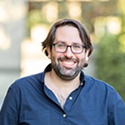How to Create Microbiome-Based Live Biotherapeutic Products
This webinar is part of the Microbiome Educational 3-Part Webinar Series.
In this webinar, you will learn about:
- Microbiome niche mapping
- Functional design of gut bacteria cultures
- Co-cultivation of microbial consortia
Summary
Over the past few years, there has been a shift in the perception of the role of microorganisms in human health. Modern biomedicine now considers that a balanced relationship between them and their host is crucial for well-being, moving beyond the notion of microbes as a threat to health. There is a growing understanding that a balanced microbiome ecosystem performs interconnected physiological processes that their hosts would not be able to carry out otherwise. This viewpoint has inspired new therapeutic approaches to restore microbial function in several pathologies related to disordered microbiomes. Doing so requires a new class of microbiome-based products that address specific disease mechanisms by incorporating essential functions of a healthy microbiome. This webinar will discuss how we have developed a novel technological approach to design and grow a co-culture of key gut bacteria to produce a consortium with a therapeutic effect in an animal model.
Other webinars in this series:
Standards for Microbiome Measurements
Genetic Maps of Earth’s Cities, Terrestrial Wastewater, and Visiting Sleighs/Spacecraft
Speaker

Gabriel Leventhal, PhD
Head Research & Development
PharmaBiome
Gabriel Leventhal is an expert in quantitative systems biology with an interdisciplinary profile spanning microbial ecology and evolution, population biology, computational biology, and statistics. He is the Head of R&D at PharmaBiome, where he helps to demonstrate that the smallest relevant biological unit of the microbiome is function, as delivered by a network of bacteria. Further to this, he leads the development of live biotherapeutic products that have the potential to restore the balance of the gut microbiome. Gabriel holds a MSc in Physics from the EPF Lausanne and a PhD in Theoretical Biology from the ETH Zurich, and was a postdoctoral fellow at MIT before joining PharmaBiome.